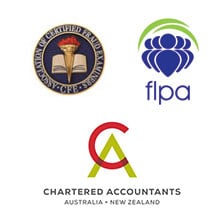The Vendor, Business Broker and the “Guaranteed Returns”
I have been involved in a significant number of commercial matters over the years where a purchaser has purchased a business on the back of an information memorandum and representations made by the vendors and the business broker engaged to assist them.
It never ceases to amaze me the representations that I have seen in regards to “Guaranteed returns” or the quality of the client base being acquired, only to have the purchaser see the business value disappear in front of them.
More recently, I was asked to assist someone with a due diligence on the purchase of a potential business. At our first meeting, I asked for them to provide me with the information memorandum and supporting financial information provided by the vendor and business broker.
What I was given left me speechless:
- 1 page sheet from the Business Broker with limited background or financial information on the business,
- A MYOB internal management Profit and loss and balance sheet for the current financial year,
- Pictures of the owners.
How someone is meant to make an informed business decision on the back of this limited information is anyone’s guess.
Equally surprisingly, was that this wasn’t a small mum and dad business operation, rather the contrary, it was a family owned, long established, large corporate entity that had a multi-million dollar turnover.
Therefore, in light of this experience and the other matters that I have been involved in, I thought it was time to set out a summary checklist to anyone who is considering purchasing a business or is advising a client in this position. I would recommend that the following information is sought as an absolute minimum:
1. Financial
a. At least the last 3 years complete financial statements (including depreciation schedules),
b. Obtain a current credit report on the business,
c. Trend analysis – How does this business compare to the industry? Is the trend likely to continue into the future?
d. What is the basis for the “guaranteed returns”? Do you consider them sustainable?
2. Taxation
a. Obtain professional advice on the tax consequences of purchasing the business/entity,
b. Are all tax obligations up to date?
c. Beware of your potential liability as a director (if acquiring the entity) ,
3. Employees
a. Are there employment contracts in place for any key employees,
b. Are all employment liabilities up to date?
4. Trading Stock
a. How is trading stock valued? Agree on an appropriate value.
b. Undertake a physical review of the stock – does it contain any obsolete stock?
c. Who owns the stock? – Beware of floor plan stock that is owned by a financer.
5. Customers
a. Review the customer lists:
i. Are there any contracts in place,
ii. What is the customer spread, i.e. is there a high reliance on a few customers?
iii. Does the vendor have any personal relationships with the existing customers,
iv. How will the customers be migrated across to the new owner?
6. General
a. Identify what are you actually purchasing?
b. Undertake relevant searches on the business,
c. Ensure appropriate restraints of trade are in place,
d. Consider locking the vendor into a handover period, i.e. the vendor works with you during a fixed term to ensure there is a smooth transition.
e. Consider earn out clauses or claw back clauses on the vendor.
f. Obtain legal and other relevant professional advice on the intended purchase.
The above is a summary of a number of the key areas that a purchaser should review as part of the due diligence process for the purchase of a business. I would also stress the importance of engaging a forensic accountant to undertake a due diligence, including the provision of a business valuation (or indicative valuation) of the business being considered.
I have seen many people who purchase a business on the basis of “buying themselves a job or lifestyle” Whilst, there is nothing wrong with this, in my experience, this often leads to the purchaser paying in excess of the actual value of the Business.
At a minimum, should the relevant information to answer the above points, not be readily forthcoming, then remember the old adage – “If in doubt, walk out”.

